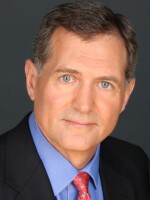AUDIE CORNISH, HOST:
Just last Sunday, President Trump tweeted that he planned to nominate Texas Congressman John Ratcliffe to be director of national intelligence. But Ratcliffe immediately came under criticism for his lack of intelligence experience, and today the president tweeted that Ratcliffe is withdrawing from consideration. It's the latest episode in an administration where the national security team is often in a state of flux. For more, we're joined by NPR national security correspondent Grey Myre.
Welcome to the studio.
GREG MYRE, BYLINE: Hey, Audie.
CORNISH: We've seen so many figures come and go in this administration. This one's unusually swift. What happened?
MYRE: Well, the lack of experience was the first thing that jumped out. Ratcliffe has been a prosecutor and a small-town mayor in Texas. He was in his third term in Congress, very strong partisan supporter of the president but didn't have this intelligence background that previous holders of this job have had.
He got a very cool reception from Senate Republicans. Most of their statements praised the outgoing Director of National Intelligence Dan Coats, but some of them didn't even mention Ratcliffe. Some people on the Hill said they didn't even really know who he was. Richard Burr, head of the Senate Intelligence Committee, today said, I respect John Ratcliffe's decision to withdraw. So this was this really tepid response he seemed to be getting.
CORNISH: Not only that - as reporters started digging into his resume, they found some of his claims didn't quite hold up. What can you tell us?
MYRE: Right. I think the one that really jumped out at a lot of people is, on his congressional website, he says, quote, "I arrested over 300 illegal immigrants in a single day," back a decade ago. As journalists dug into this, it turns out, well, he sort of played a supporting role in all of this, but this was a big operation. He was not the key figure.
He also boasted that he prosecuted dozens of terrorism cases. Again, he seemed to be a bit player in one or two cases but not a central figure. So really not the kind of national security or intelligence credentials that he'd been boasting on resumes and campaign literature.
CORNISH: Of all the Trump loyalists in Congress, why did Ratcliffe get the attention of the president?
MYRE: Well, we - it seemed that this is something that happened fairly recently. Dan Coats had been at odds with the president, seemed like he might be on the way out. So that part of it wasn't such a surprise. And there were reports that Ratcliffe did meet with the president a couple of weeks ago, so he had sort of caught the president's attention. And then Ratcliffe was a very sharp critic of Robert Mueller, suggesting that Mueller had overstepped his bounds in the sort of televised hearing when Mueller went up to Capitol Hill.
So some are saying that almost was sort of an audition for this job because, in just a few days later, the president tweeted that Dan Coats was out and Ratcliffe was in. And then today the president has tweeted again saying, John Ratcliffe is being treated very unfairly by the lame-stream (ph) media. And rather than go through months of slander and libel, he's decided to stay in Congress.
CORNISH: What does this mean for the intelligence community?
MYRE: Well, we'll find out. Dan Coats is still scheduled to leave the job on August 15. Now, by statute, the deputy, Sue Gordon, who's very highly respected - spent well over 30 years in the intelligence community; widely known, widely respected - she's supposed to take over on an interim basis, but it hasn't happened yet. And just within the past hour, Trump said that he might choose her on an interim basis but didn't commit to it.
He also said he had three names in his mind for potential permanent selections and that that could come on Monday. But again, the previous directors of national intelligence had decades of experience in the military intelligence diplomacy, and given the president's troubled relationship, I think he'll need to pick someone with those kinds of credentials if he wants a smooth confirmation.
CORNISH: That's NPR's Greg Myre.
Greg, thank you.
MYRE: Thank you, Audie. Transcript provided by NPR, Copyright NPR.



